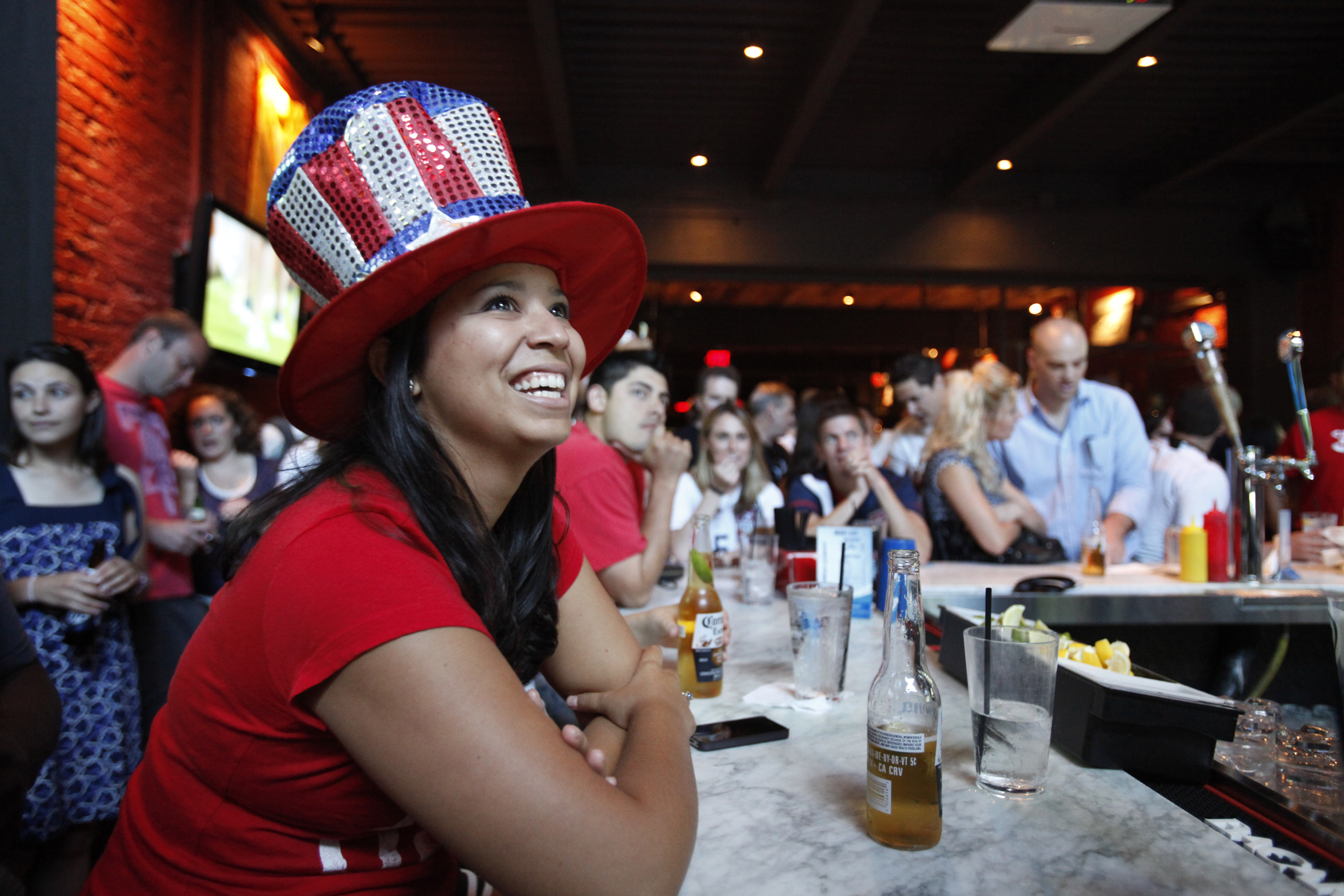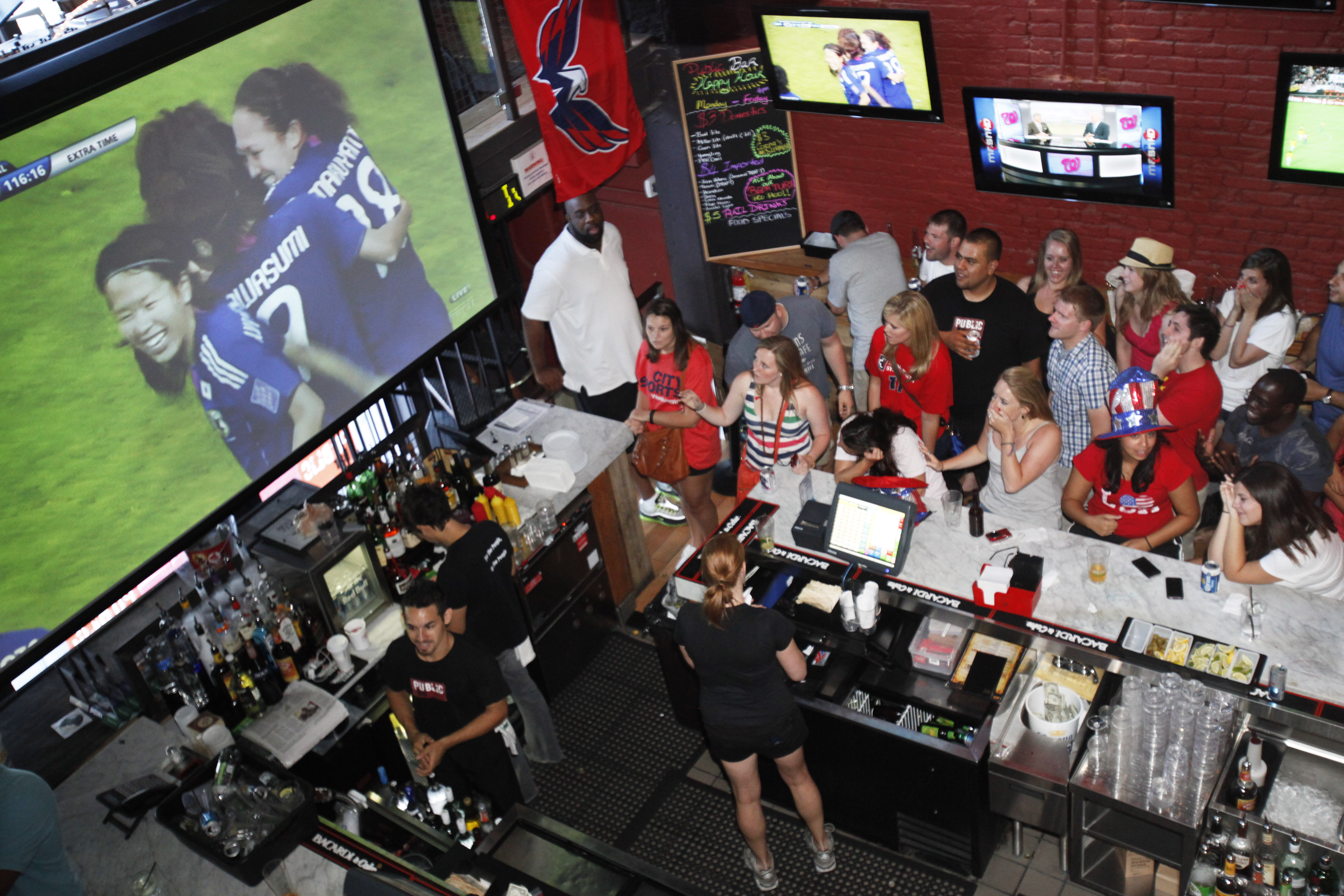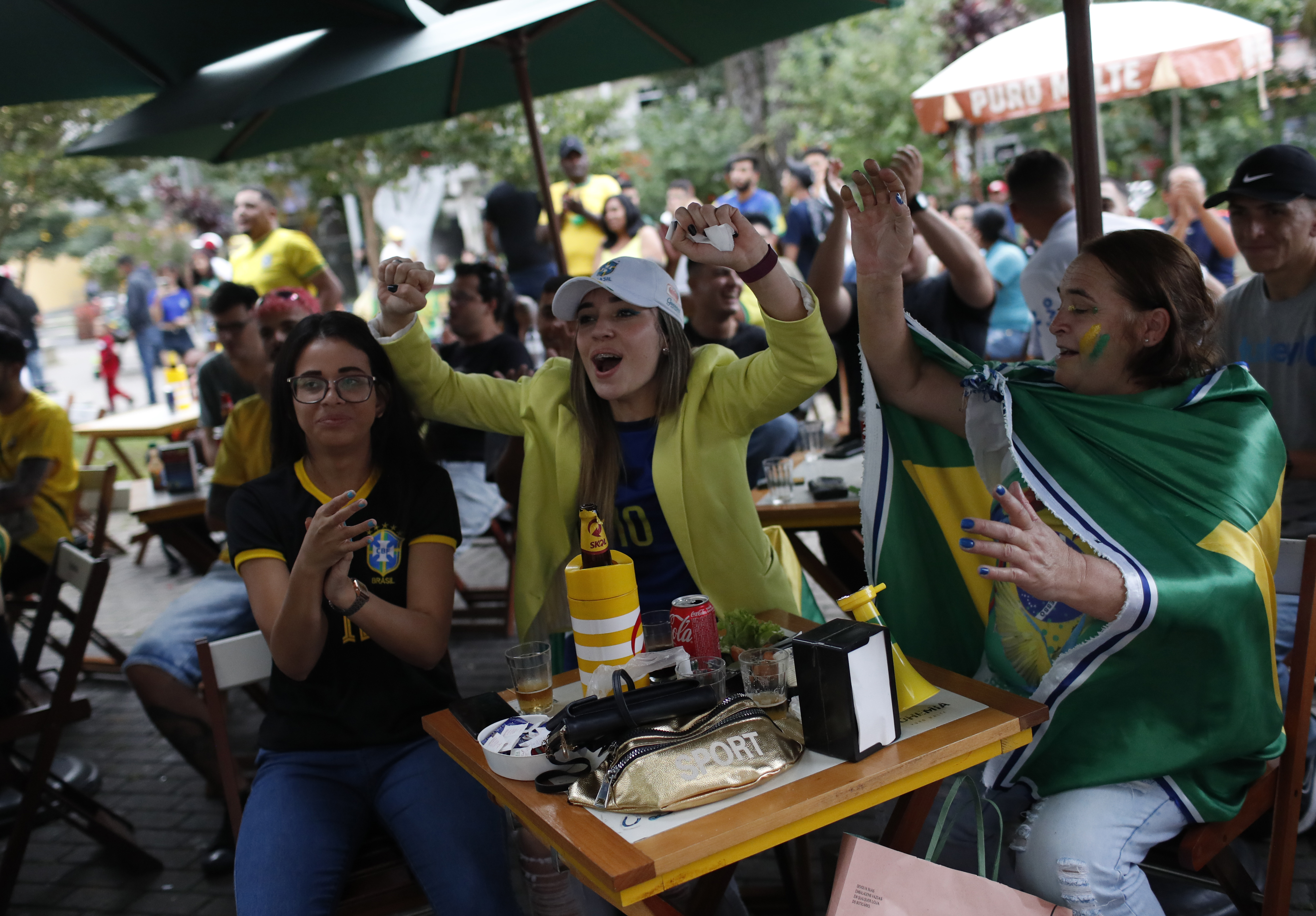
Washington, DC, and Sao Paulo, Brazil – With the FIFA Women’s World Cup hosted this year in Australia and New Zealand, some bar and restaurant owners in the Americas are bracing for an exhausting month.
Nine of the 32 teams competing in the tournament this month are from the Americas. But with play taking place on the opposite side of the world, some matches are set to kick off in the middle of the night for fans in countries like Brazil or the United States.
Nevertheless, restaurant and bar managers told Al Jazeera they are committed to staying flexible, adjusting their hours to cater to die-hard football supporters.
“The plan is to open for every single game,” Aris Fuentes, the general manager of Public Bar Live in Washington, DC, told Al Jazeera. “I have a really great staff around me and a lot of people are willing to work.”
Fuentes said he plans to scale his staff up or down depending on the turnout, expecting “all hands on deck” for games featuring the US women’s national team, a favourite to win.

But the US is far from the only top seed from the Americas in the tournament. Brazil and Canada, which won gold at the 2020 Tokyo Olympics, both have high-ranking teams too.
Costa Rica, Jamaica, Panama, Argentina and Colombia are also in the running for the tournament title. One team, Haiti, is making its first appearance ever at a Women’s World Cup.
To attract a wide range of viewers, Fuentes aims to tap into his hometown advantage: Washington’s thriving international community. He has sent invitations to foreign embassies based in the US capital, hoping to attract a varied audience.
“DC is one of the most diverse cities,” Fuentes said. “I think the European women’s soccer teams in particular have a lot of support. So whenever you have any European country play, I think it’s gonna be a good turnout.”
The local Washington, DC, government has made plans like his possible. In June, it passed an emergency measure — dubbed the Women’s World Cup Emergency Declaration Resolution of 2023 — to allow bars to stay open 24 hours and serve alcohol for all hours except from 4am to 6am.
“Notwithstanding the time difference, local soccer fans are expected to watch the 2023 Women’s World Cup tournament regardless of the hour,” council member Kenyan McDuffie said upon introducing the legislation.
Some businesses hope the unique star power of the US women’s national team, which has regularly attracted more eyeballs and profit than their male counterparts, will make the long hours and extra overhead worth it.
About 27 million and 20 million people in the US tuned in to watch the women’s team in the World Cup finals in 2015 and 2019, respectively. Viewership for the 2019 final was 22 percent higher in the country than for the 2018 men’s World Cup.
The women’s team will be competing for their third consecutive title, led by veteran players Megan Rapinoe, Alex Morgan and Julie Ertz.
“We’ll be open for all USA games and for any games that fall within our normal business hours,” said Nikki Hunter, the general manager of the Astro Beer Garden in Washington, DC.
The bar has a partnership with the local chapter of the American Outlaws, a national fan club for the US men’s and women’s teams.
That group, she said, is more open to coming out during “weird” hours. The bar also plans to feature women-owned breweries during the tournament as well as its own signature World Cup brew, made with a local company.
Still, Hunter acknowledged the overnight games are “gonna be tough”.
“We just don’t know how many people are gonna come out in the middle of the night for a soccer game,” she said.
Perhaps mercifully for venues like Hunter’s, the first two matches for the US women’s team will start at 9pm local time (1:00 GMT).
Things get interesting from there. Their third match in the group stage will fall at a less hospitable time, 3am local time (7:00 GMT). The round of 16 and quarter-final schedules both spell possible overnight starts for the US women.
The semifinals will then start at 4am (8:00 GMT) and 6am (10:00 GMT) on the US East Coast, and the final will begin at 6am (10:00 GMT).
‘Timing on it is just rough’
Some longtime football establishments, however, have found themselves hamstrung by the difficult hours or restrictive local laws.
The Burgundy Lion in Montreal, Canada, which caters to Canada and England fans, is not planning to adjust its hours during the tournament.
According to general manager Robert Gouldson, the pub will only be open for about half the matches – those that fall within its normal business hours.
That means England and Canada’s early morning group stage matches are out, save for Canada’s face-off with Nigeria at 10:30pm local time (2:30 GMT) on July 20.
“Those odd-hour games can make for a pretty fun atmosphere,” Gouldson said. “Unfortunately, it just doesn’t make much sense from a business perspective”.

But Gouldson added that exceptional circumstances may force the Burgundy Lion to revise its hours.
“Let’s say it’s Canada and England for the finals. We are definitely going to open,” he added. “So we’ll be rooting for Canada and England, from both a business perspective and a fan perspective.”
The timing challenges persist on the US west coast, which is three hours behind the east. While that means some matches will be scheduled for more manageable time slots, others — like the final — will not begin until the early stretches of the morning: 3am local time (22:00 GMT).
Daniel Pagard, the owner of the George and Dragon Pub in Seattle, Washington, said he will release a schedule of replays throughout the tournament so fans can relive the matches during normal business hours.
However, he said local laws will make it impossible for him to stay open to show some of those matches live.
“I love that the World Cup is here and we’re gonna have a great time with it,” he said. “But the timing on it is just rough.”
‘Important incentive’
In football-mad Brazil and its largest city Sao Paulo, it will be nearly impossible for fans of the women’s national team to watch World Cup matches at bars.
Brazil’s group games will kick off at either 7am or 8am local time (10:00 or 11:00 GMT), when sports bars are typically closed.
“Some people would have come and watched the games, albeit not as many as the men’s World Cup,” Leonardo Silva Prado, owner of Sao Cristovao, a traditional football bar in Sao Paulo’s bustling Vila Madalena neighbourhood, told Al Jazeera.
“But it wouldn’t make sense for us financially.”
Silva Prado pointed to the continued disparity in viewership between the men’s and women’s national tournaments. Globally, more than 3.5 billion people watched the 2018 men’s World Cup, compared with about 1.12 billion for the women’s the following year, according to FIFA.
A few blocks up the street, the managers at O Pasquim — another gathering spot for live football — said their establishment will also remain closed during this year’s group matches for Brazil’s women’s team.

“For a match that starts at 7am, we’d have to open at about 5am,” explained one of the bar’s owners, Humberto Munhoz. “We’d have to have a breakfast menu, which we don’t have. We’d have to have an entire extra shift of staff and that all costs.”
That stands in contrast to the bar’s schedule for last year’s men’s World Cup in Qatar, which Munhoz said was worth opening early for. He called it “the only event” that could put bums on seats before noon.
“We sincerely hope that women’s football can reach that level. It would be incredible for us as a business,” he said.
Still, neither Munhoz nor Silva Prado ruled out opening their doors early if Brazil’s women’s team were to make it to a historic second final. Their first and only appearance in the tournament’s final match came in 2007.
“We would open for the day,” Munhoz said. “When we can focus all our efforts on a single important day, instead of several games, it’s less of a risk.”
“Even if we didn’t draw a crowd, I think it would be an important incentive for women’s football in Brazil.”







